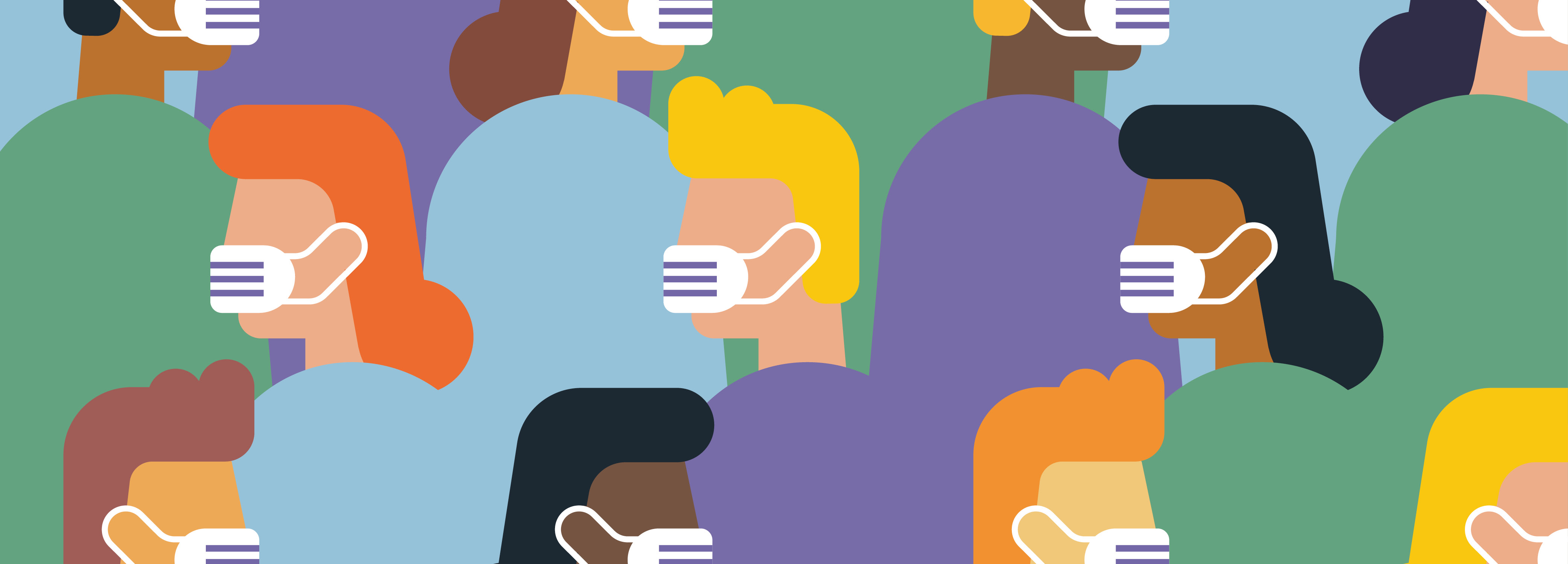
Olivia Dodge has vivid memories of the last day she spent on Laurier’s Waterloo campus before it was closed due to COVID-19.
“It was very jarring. I was sitting in the Indigenous Student Centre and everyone was refreshing their phones,” says Dodge, recalling how students were awaiting an announcement from the university about moving classes online and closing campuses.
“Eventually it happened. We cleaned up the centre and said, ‘See you in six months!’ and went home. It was all so abrupt.”
Now living at home with her family in Toronto, Dodge misses the Indigenous Student Centre. A fourth-year music student, she discovered her Métis identity during her third year at Laurier. Dodge was welcomed into the Indigenous Student Centre and feels its programming and community led to her most successful year at Laurier.
As the COVID-19 pandemic continues, Dodge says being away from campus and its community is taking a toll on her mental health.
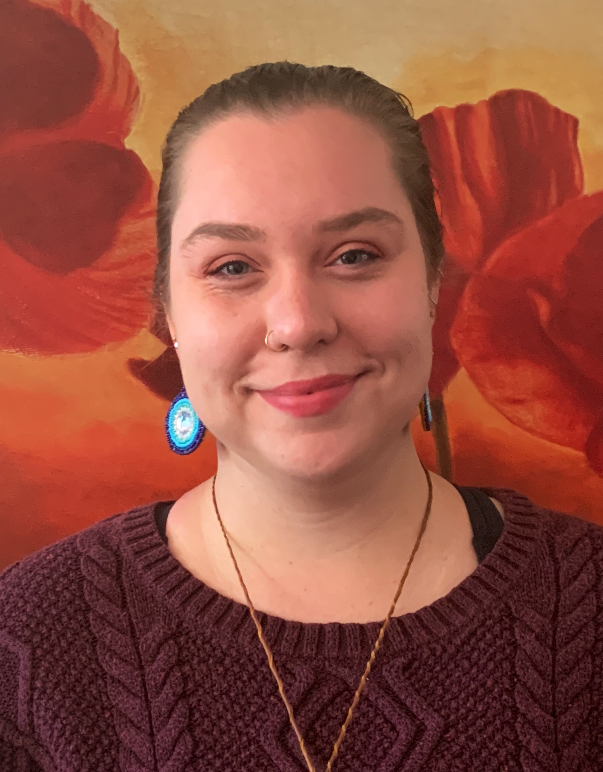
Olivia Dodge has found support through Indigenous Student Centre online programs during the COVID-19 pandemic.
“At the beginning, everyone was saying things like, 'Woohoo, another week of March break! We’re relaxing, we’re having a good time, I’m happy to not be immersed in the stress of a school environment' – while also being on a high alert and experiencing high anxiety,” says Dodge. “You know, it’s always there and sometimes it really takes a toll on me emotionally because I see everything that’s going on because we’re all glued to our phones trying to see the latest updates.
“I wonder sometimes, am I really not going to get to hug my friends for another year? That makes it tough.”
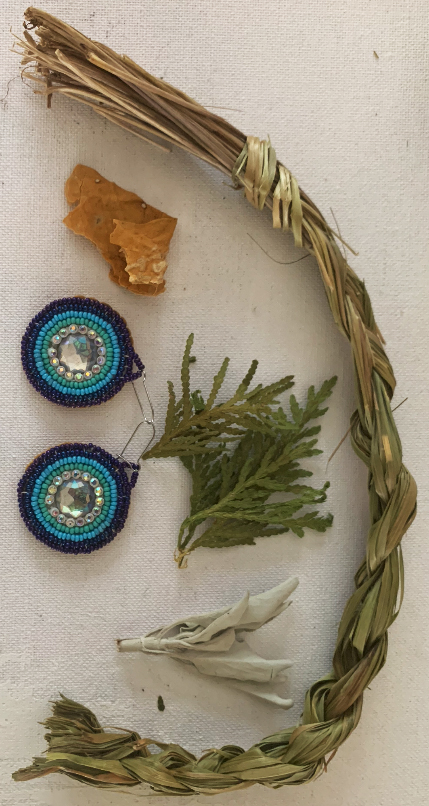
With the help of the Indigenous Student Centre, Dodge has been active in her own self-care. To relax, she makes art, watches Netflix and continues to connect with Indigenous Student Centre programming online, which this year continued into the summer months. Traditional beadwork, which she began last November, has been a lifeline in maintaining a sense of community, healing and learning.
“Everyone at the Indigenous Student Centre has a traditional style of beading, but we have created a culture of unity and sharing because we’re stronger together,” she says. “Indigenous knowledge is shared from one person to another – it’s relational.”
Laurier’s Indigenous Student Centres are just one example of places students, staff and faculty members can access support during the COVID-19 pandemic. Others include the university’s Student Wellness Centres and the Laurier-affiliated Delton Glebe Counselling Centre, which have adapted their services to offer online and distance supports. Laurier has also provided wellness supports to the wider community through webinars and e-learning programs, including an Essential Self-Care and Resilience course and a new podcast called Thriving in Progress, available on Apple Podcasts and Spotify.
Indigenous Student Centres on Laurier’s Waterloo and Brantford campuses focus on holistic wellness, offering one-to-one support and group programming based in a range of traditional practices. To offer extra support during the pandemic, the centres have provided staff with cellphones to connect with students personally.
During the fall, the centres worked to hire an Indigenous counsellor, mail out traditional medicine smudging kits and create a speaker series focused on digital knowledge, in addition to regular programming.
“Laurier’s Indigenous Student Centres are really rooted in what our students need,” says Melissa Ireland, director and interim senior advisor of Indigenous Initiatives at Laurier.
━
The COVID-19 pandemic has forced activities out of the physical world and into a virtual space. That can take a toll, especially if it’s happening in isolation. Yvette Itangishaka, a fourth-year Biochemistry student on Laurier’s Waterloo campus, has had to make more than one big transition in her life and now finds herself in a new, challenging circumstance.
“I was born in Rwanda, but I’m originally from Burundi and I grew up in refugee camps,” says Itangishaka, who came to Laurier in 2014 as part of the World University Service of Canada program, which sponsors refugee students to study in Canada.
When the pandemic hit, Itangishaka was immersed in her studies and active as a World University Service of Canada volunteer. Everything changed when campus closed. All of her social activities stopped and she moved out on her own to protect her immune system.
Living by herself is tough, Itangishaka admits. She was expecting a summer of work, travel and socializing, but instead found herself alone for months, finishing course work online, setting up an online coaching and marketing business, and trying to plan for fall.
“I come from a big family, I’m used to people, then you have to be alone in the house… it was very, very overwhelming, but what can we do about it?” says Itangishaka. “There is nothing you can do about it. We just have to follow the rules and do what we can to be safe. It’s overwhelming, but I have gone through a lot, to an extent that I get used to some things."
– Yvette Itangishaka
When she feels overwhelmed, Itangishaka takes care of her mental health through motivational videos and books, exercising and working on her business. She finds calm by working methodically through her tasks and giving them her best. She often draws on the support of the Laurier International office and has a mentor in the science field who helps with advice.
“He helps me to get back to my track,” says Itangishaka. “He gives me advice on how I can go for things that I want in life during the pandemic and be able to take a rest and get back to the work that I am supposed to do.”
Itangishaka stays in touch with family online. She’s excited about future plans for nursing school, where she wants to work closely with others to make a difference in people’s lives.
Magnus Mfoafo-M'Carthy, associate professor in Laurier’s Lyle S. Hallman Faculty of Social Work, says Itangishaka is doing the right things to keep her mental health strong. Mfoafo-M'Carthy recommends students in Itangishaka’s situation reach out to family members, engage in exercise and contact a counsellor if they begin to experience more severe depressive symptoms.
Mfoafo-M'Carthy specializes in research into the experience of immigrants to Canada.
“As much as individuals may be struggling due to the pandemic, we should not lose sight of the cultural challenges new Canadians may be confronted with due to the need for meeting new people and new ways of life,” says Mfoafo-M'Carthy. “The Canadian environment may be very different from what immigrants to Canada are used to.”
━
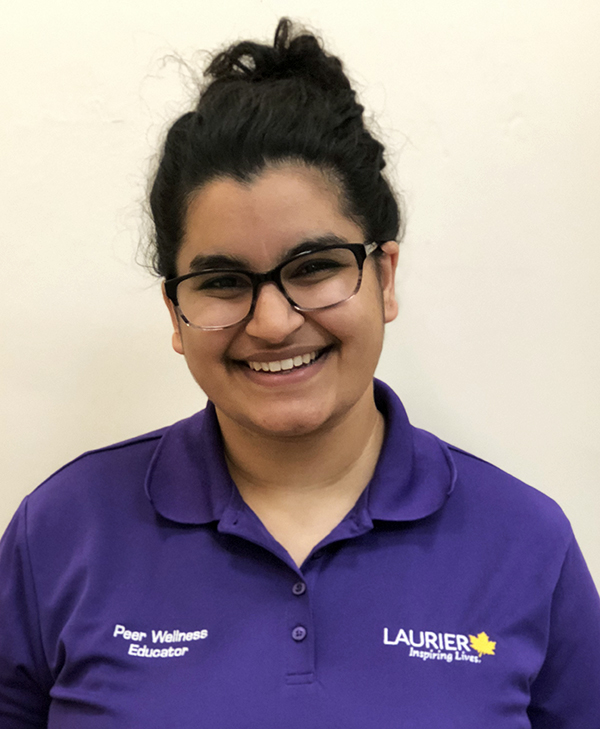
Sharan Dhillon has drawn on her experience at the Brantford campus Wellness Centre during the COVID-19 pandemic.
Sharan Dhillon is a fourth-year Criminology student and Peer Welllness Educator on Laurier’s Brantford campus. Like Dodge and Itangishaka, she is feeling the strain of changed routines and a new learning environment. Dhillon’s first challenge was online learning, which she says she doesn’t enjoy, so she’s grateful to her professors for helping her through it.
Next was a challenging adjustment to a new routine at home.
“Mentally, because we were in lockdown and couldn’t leave the house unless it was important, I felt tired all the time,” says Dhillon. “Seeing the same people and not talking much – it became hard because there was not much I could look forward to. I also felt sad because I couldn’t finish school in person with my friends.”
Soon, Dhillon built a gym in her basement and created a routine that included exercise.
“It really helped with my mood and became part of my daily agenda,” she says.
Connecting with friends online and helping her younger siblings with their school work also became part of her daily routine. That was also not without its challenges.
“Sometimes it was hard because the content I learned when I was younger was much different than what they were learning in school,” she says. “It was a very difficult adjustment to make.”
On top of these challenges, Dhillon also continued working at Tim Hortons, where she learned new routines, additional cleaning procedures and practicing safe physical distancing.
Dhillon says she draws on her years of learning and experience at the Brantford campus Wellness Centre, including tactics to reduce anxiety and stress, maintain a healthy diet and practice good sleeping habits. She has also started cooking and baking for her family.
"I found immersing myself in new tasks helped me significantly,” she says. “It also feels good feeding my family new foods and desserts.”
One special part of Dhillon’s self-care routine is watching a nightly prayer program on television with her grandmother, during which she finds some peace by “just listening and meditating.”
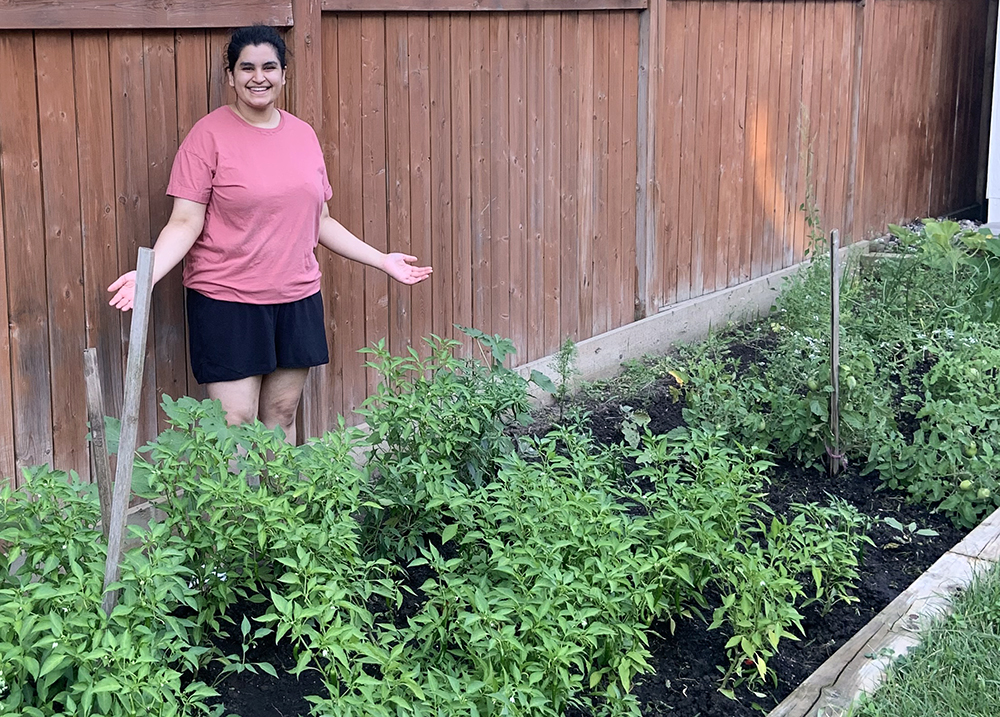
Carolyn Fitzgerald, an assistant professor in Laurier’s Faculty of Education, applauds Dhillon’s wellness choices.
“Given that this pandemic has evolved into a long-term stressor, it is especially important that we deliberately and consciously take care of our well-being,” says Fitzgerald. “The fundamentals of well-being haven't changed – we do best when we eat well, sleep well and stay physically active.
“The changes associated with coping with the pandemic have truly been unprecedented, given that the vast majority of people on this planet have no experience with a global pandemic of this scale. It is no surprise that learning to live under these conditions has impacted our emotional well-being.”
Fitzgerald recommends following Dhillon’s strategy of going beyond the fundamentals to engage with activities that fulfill a greater purpose, especially alongside people who we love and trust.
“There will be challenges for many students with remote and online learning,” says Fitzgerald. “But with that comes many opportunities to connect with others, to learn, to get and offer support. At this point, we all have some experience under our belts and the potential positive impact of what we have learned from our experience should not be underestimated.”